The Lives of the Poems and Three Talks
Joshua Beckman, widely published writer, translator and editor-in-chief of Wave Books, inaugurates Wave’s Bagley Wright Lecture Series with his two-book set, The Lives of the Poems and Three Talks.
At the NewPages Blog readers and writers can catch up with their favorite literary and alternative magazines, independent and university presses, creative writing programs, and writing and literary events. Find new books, new issue announcements, contest winners, and so much more!
Joshua Beckman, widely published writer, translator and editor-in-chief of Wave Books, inaugurates Wave’s Bagley Wright Lecture Series with his two-book set, The Lives of the Poems and Three Talks.
The C-word. Cancer. I’m sure if you interviewed ten people and asked them what their top three fears are, this one would make the list. And in a time in which we’re all necessarily exposed to the environmental risks posed by advances in the manufacturing industry, big agribusiness, and global warming, this fear is heightened.
Domesticity at its finest, or worse. Whatever it is, Jeremy T. Wilson makes sure that the reader has a nice, comfortable spot on the couch of these unhappy homes before bulldozing them. Adult Teeth is a book for any adult who has ever considered cheating on his or her spouse, a what-not-to-do guide for divorcees and potheads that wonder what being an alligator might feel like.
Samuel Johnson’s Eternal Return is the needle and thread that connects life and death, grumpy old man and flâneur. The story revolves around a fellow named Samuel Johnson who dies protecting his son from an armed lunatic. He then enters into the body of the lunatic as a passenger, watching the world like a TV show through the eyes of his own murderer. Eventually, the lunatic dies, and Samuel Johnson bounces from body to body, hoping to one day reunite with his son.
The Lake Michigan Mermaid is a beautiful and haunting collection of poems about a relationship between a young girl and a freshwater mermaid. The poems alternate between the voice of the girl and voice of the mermaid, with Anne-Marie Oomen writing the girl’s poems and Linda Nemec Foster writing the mermaid’s. And woven throughout the book are lovely watercolor illustrations by Meridith Ridl.
Be Brave: An Unlikely Manual for Erasing Heartbreak is tremendous. I came upon this volume by sheer dumb luck—through a professional discussion board on which I was posting my first ever reply after lurking for years—to J.M. Farkas, who had written her first ever post to the group “looking to connect with teachers teaching Beowulf” who were open to unexpected ways of approaching the text. Yes, please! But, as I learned, Be Brave isn’t just about Beowulf. In fact, it’s hardly about Beowulf per say. It is a complex, layered work, starting with its origin.
On the window sill,
in a plastic ice cream cup
a little plant is growing.
Nancy Miller Gomez’s chapbook on her time spent teaching incarcerated men to write poetry at the Salinas Valley State Prison is short . . . too short.
Reading the title of John McNally’s book, The Promise of Failure: One Writer’s Perspective on Not Succeeding, I wondered if, in the end, I would get good news or bad.
When I think of fiction, I imagine literature that takes me far away from my own reality into other worlds. Anticipating Doug Ramspeck’s first fiction book The Owl That Carries Us Away, I almost envisioned a giant owl taking me to a brand-new world. To my surprise, however, I found myself, or rather lost myself, in worlds similar to my own. The familiar places and situations opened possibilities for me to relate to the characters and sympathize with them, while the carefully crafted language became the link offering connections to the author’s worlds.
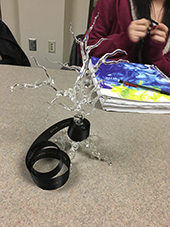 Broadsided Press has recently added a section to their site: Teach. It’s a growing area of their work and will feature lesson plans for teachers interested in using broadsides in the classroom. It currently includes plans for Grades 6-8 and Adults/University: “Broadsides as Adventure and Architecture,” “Writing a Photographic Poem,” and “Graduate Poetry Workshop – 4 Weeks on Ekphrasis.” The content is appropriate for working in a structured educational setting or in a community center or other organization of writers. For teachers, Broadsided Press welcomes you to share your lesson plan/article for publication consideration.
Broadsided Press has recently added a section to their site: Teach. It’s a growing area of their work and will feature lesson plans for teachers interested in using broadsides in the classroom. It currently includes plans for Grades 6-8 and Adults/University: “Broadsides as Adventure and Architecture,” “Writing a Photographic Poem,” and “Graduate Poetry Workshop – 4 Weeks on Ekphrasis.” The content is appropriate for working in a structured educational setting or in a community center or other organization of writers. For teachers, Broadsided Press welcomes you to share your lesson plan/article for publication consideration.
Edify Fiction is seeking submissions for two upcoming themed issues. For the December 2018 issue, they are accepting pieces surrounding the topics of Christmas, holiday, and winter. Their January 2019 issue looks at all things teen – from teen writers to bullying, peer pressure, emotions, first love, best friends – and more.
 When I asked Edify Fiction Editor Angela Meek [pictured] about the teen-themed CFS, she replied, “I was inspired recently to make a themed issue about teen concerns because of a story we recently accepted that incorporated the author’s own experiences as a teen and how those challenges shaped him. As a mom with a teen who is starting to stretch those wings and find her way in the world, I thought it would be a good time to have a dedicated issue.”
When I asked Edify Fiction Editor Angela Meek [pictured] about the teen-themed CFS, she replied, “I was inspired recently to make a themed issue about teen concerns because of a story we recently accepted that incorporated the author’s own experiences as a teen and how those challenges shaped him. As a mom with a teen who is starting to stretch those wings and find her way in the world, I thought it would be a good time to have a dedicated issue.”
The call is a broad one, and Meek says they want it that way: “We’re pretty open as long as it is has a teen flavor to it – growing up, relationships, bullying, sports, siblings, dealing with parents, dealing with living in a divorced family, acceptance, school – you name it. As long as it is related to teens in some manner, any topic is welcomed. We also would love to feature as many teen writers as possible – from never-been-published to those writers who know their way around the writing world.”
For more information, check out Edify Fiction on Facebook and Twitter. Their general submissions guidelines can be found here, which apply for the themed issues as well. Deadline for both these themed issues is October 31, 2018.
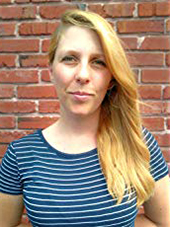 CutBank 88 features the winner and runners up of their annual Big Sky, Small Prose Flash Contest, as selected by Judge Zach VandeZande:
CutBank 88 features the winner and runners up of their annual Big Sky, Small Prose Flash Contest, as selected by Judge Zach VandeZande:
1st Place Winner
“Water” by Allie Mariano [pictured]
Read more about Allie Mariano and the judge’s comments here.
Runners Up
“A Posture of Grace” by Kim McCrea
“Holding His Fire” by Daryl Scroggins
Big Sky, Small Prose: Flash Contest 2018 is open until September 30. Read the full details here.
I think most of us know some old home – a beautiful relic of an era long gone by that we believe holds family stories as well as secrets. And, sadly, we also watch many such structures rot away, lost in court battles or just cost of upkeep, often times being razed with whole histories erased with them. Georgia-based writer and documentary photographer Kathleen Galvin followed one such home for over a decade and tells the story of her attempts to salvage its history in Temptation to Trespass: A Photo Essay published in Terrain.org: A Journal of the Built + Natural Environments. Though the end result may not provide all the stories and secrets, such efforts give a last chance, perhaps a final story, to these great community structures.
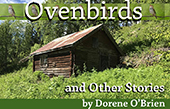 Wordrunner eChapbooks publishes an annual themed anthology, taking submissions just prior to publication, but also then publishes two e-chapbooks of fiction each year. While they have a submission fee, they are also a paying market (with a better return than I’ve been getting for playing the lottery lately). “Our aim is to make high quality writing available free or at very low cost, much like the original chapbooks that were hawked in the streets of 18th and 19th century London for pennies,” the editors note. Yet web publishing opens up all kinds of new options for digital-aged readers: “In many issues, hyperlinks to photos, videos, background articles, maps, poetry, and artwork add new dimensions to the online reading experience.”
Wordrunner eChapbooks publishes an annual themed anthology, taking submissions just prior to publication, but also then publishes two e-chapbooks of fiction each year. While they have a submission fee, they are also a paying market (with a better return than I’ve been getting for playing the lottery lately). “Our aim is to make high quality writing available free or at very low cost, much like the original chapbooks that were hawked in the streets of 18th and 19th century London for pennies,” the editors note. Yet web publishing opens up all kinds of new options for digital-aged readers: “In many issues, hyperlinks to photos, videos, background articles, maps, poetry, and artwork add new dimensions to the online reading experience.”
The current chapbook is Ovenbirds and Other Stories by Dorene O’Brien, with a full archive of previous e-chapbooks and anthologies going back to 2008. Submissions for the spring anthology will open January 1 with submissions for the e-chapbook fiction series running from May 1 – June 30. Lots of time to get your manuscripts ready!
Glimmer Train has just chosen the winning stories for their May/June Short Story Award for New Writers. This competition is held three times a year and is open to all writers whose fiction has not appeared in a print publication with a circulation greater than 5000. The next Short Story Award competition will start on September 1: Short Story Award for New Writers. Glimmer Train’s monthly submission calendar may be viewed here.
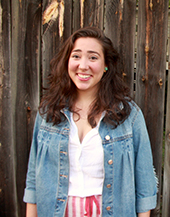 1st place goes to Victoria Alejandra Garayalde of San Juan, Puerto Rico, who wins $2500 for “American Dream.” Her story will be published in Issue 104 of Glimmer Train Stories. This will be her first print publication. [Photo credit: Rebecca Titus]
1st place goes to Victoria Alejandra Garayalde of San Juan, Puerto Rico, who wins $2500 for “American Dream.” Her story will be published in Issue 104 of Glimmer Train Stories. This will be her first print publication. [Photo credit: Rebecca Titus]
2nd place goes to Jenzo DuQue of Brooklyn, NY, who wins $500 for “How to Harbor an Illegal.” His story will also be published in an upcoming issue, increasing his prize to $700. This will be his first print publication.
3rd place goes to Sena Moon of Ann Arbor, Michigan, who wins $300 for “Sugar.”
A PDF of the Top 25 winners can be found here.
Deadlines soon approaching!
Fiction Open: August 31 (grace period extends through September 10)
Glimmer Train hosts this competition twice a year, and first place wins $3000 plus publication in the journal, and 10 copies of that issue. Second/third: $1000/$600 and consideration for publication. This category has been won by both beginning and veteran writers – all are welcome! There are no theme restrictions. Word count generally ranges from 3000 – 6000, though up to 28,000 is fine. Stories may have previously appeared online but not in print. Click here for complete guidelines.
Very Short Fiction Award: August 31 (grace period extends through September 10)
This competition is also held twice a year, with first place winning $2000 plus publication in the journal, and 10 copies of that issue. Second/third: $500/$300 and consideration for publication. It’s open to all writers, with no theme restrictions, and the word count range is 300 – 3000. Stories may have previously appeared online but not in print. Click here for complete guidelines.
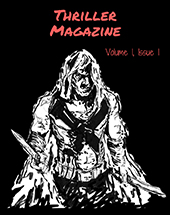 With a name like Thriller Magazine, there’s little room for mistaking the genre of this new online biannual publishing short stories and flash fiction under the umbrella of thriller/suspense/mystery. And with Editor in Chief Ammar Habib’s background, readers of this publication can expect to experience quality genre literature, while writers can expect that their work will be respectfully considered. Continue reading “New Lit on the Block :: Thriller Magazine”
With a name like Thriller Magazine, there’s little room for mistaking the genre of this new online biannual publishing short stories and flash fiction under the umbrella of thriller/suspense/mystery. And with Editor in Chief Ammar Habib’s background, readers of this publication can expect to experience quality genre literature, while writers can expect that their work will be respectfully considered. Continue reading “New Lit on the Block :: Thriller Magazine”
Carve Magazine, which offers readers new “honest fiction,” poetry, nonfiction, illustrations, and interviews in its quarterly print publication has even more to offer in its online Carve Classroom.
For teachers, Carve can re-print bulk orders of back issues (most of which are sold out in single copy), and also provides free lesson plans for single stories online. The lesson plans are availabe to download as Word documents and include a link to the story, some of which feature audio readings. The plans include group activites, discussion prompts, and critical reading and writing exercises. Just in time for the new school year!
For writers, Carve offers online writing classes exploring elements of craft. Writers can choose a self-study or community platform option, with six weekly lessons composed of assigned readings, notes on a particular craft element, questions to apply to the assigned reading, and writing exercises to practice the craft. Self-study students receive guided feedback on the reading and writing assignments (NOT manuscript critiques). The community platform options utilizes Wet Ink for a full course interaction with peers.
Also available for writers is a manuscript critique service, and for readers and writers alike, there is a free sign-up for Carve Tips for Writers delivered weekly to your mailbox or using RSS Feed or Apple News.
Much to be discovered and enjoyed at Carve!
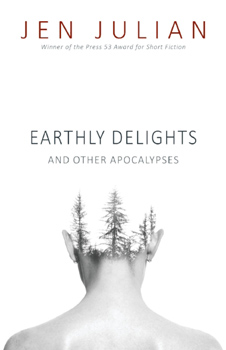 If you’ve been itching to get your hands on copies of the 2018 Press 53 Award for Short Fiction winner, now you can. Readers may now preorder copies of Jen Julian’s Earthly Delights and Other Apocalypses which will ship early October and is available in both paperback and hardcover.
If you’ve been itching to get your hands on copies of the 2018 Press 53 Award for Short Fiction winner, now you can. Readers may now preorder copies of Jen Julian’s Earthly Delights and Other Apocalypses which will ship early October and is available in both paperback and hardcover.
Publisher and Editor-in-Chief Kevin Morgan Watson says the collection:
held my interest while taking me on a variety of journeys, both real and surreal, from a paleontologist who spontaneously crumbles to dust during a lecture, to siblings dealing with their hoarder-father’s estate. These stories ranged widely in theme and style, and after finishing one story I looked forward to where I would be taken in the next.
While you’re waiting on your signed copy of Earthly Delights and Other Apocalypses, you can stop by TriQuarterly’s website for a taste of Julian’s writing with “Attachment,” published this past July.
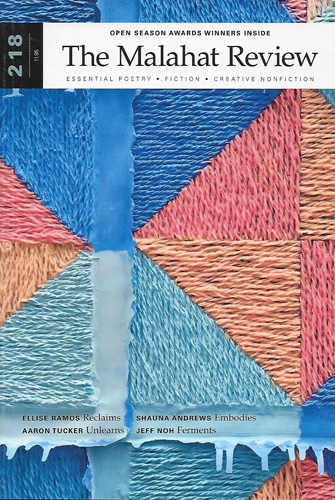
“Regret” by Shary Boyle featured on the cover of The Malahat Review is a unique porcelain sculpture, china paint, horse and synthetic hair, and velvet (2015). See more of Boyle’s work here.
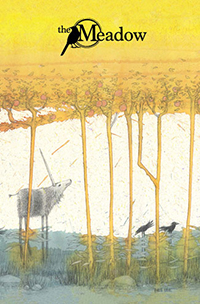
I love the fairy tale aura of Wes Lee’s “Day 242” on the cover of 2018 issue of The Meadow from Truckee Meadows Community College, as well as the magazine’s new logo design.
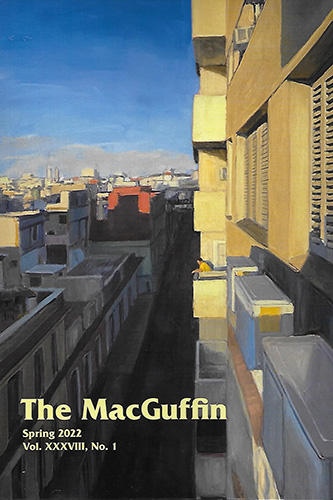
I’m a sucker for a good old-fashioned fisheye lens, and luckily, The MacGuffin‘s own nonfiction editor, Michael Dyke doubles as a photographer, providing this view of Belle Isle Aquarium, Detroit, Michigan for the Spring 2018 cover.
“. . . poetry is no more or less important now than it ever has been,” writes Professor and Editor Daniel Donaghy in the inaugural issue of Here: a poetry journal. Published out of Eastern Connecticut State University, Here engages student readers and editors for its submissions process, and seeks “diverse, wide-ranging, and powerful responses in poetry to the essential and endless questions related to ‘being here’ that are implied by the journal’s title.” After reading this first issue, there is no doubt that Here has established a place for itself.
Having traveled down south on numerous occasions, I have found there is much to love about North Carolina. Lou Lit Review adds to that adoration, a new international journal of fiction and poetry published at Louisburg College. While a slim inaugural installment, with solid mentorship from the editors of Raleigh Review, Lou Lit has established itself with resounding force. As Co-editors Tampathia Evans and Tommy Jenkins express in the Editors’ Note: “Lou Lit is still ‘becoming’ and we are not quite sure what we are as of yet. What we do know is that we will continue to publish writers whose work represents the complexity of the human condition and makes us want to read on.” Absolutely.
Each issue of True Story shines a spotlight on one nonfiction piece by one writer. As one of my favorite print magazines, I always look forward to finding out which each new issue’s story will be. This year’s issues have, among other stories, featured a neighborhood coming together to search for a missing woman with dementia (“Search Party” by Stewart Lawrence Sinclair), and a camp counselor reflecting on his treatment of a particular camper in the wake of a sex abuse scandal involving the camp where he was once a camper himself (“Unmolested” by Michael Lowenthal). Readers never really know what to expect with each issue, part of the beauty of the little, pocket-sized magazine.
Before I get into discussion of interesting pieces, I want to stop for a moment and draw attention to The Florida Review’s commitment to the education of budding artists. In the Fall 2017 issue, The Florida Review gives a generous note about editorial interns, both graduate and undergraduate, who are “involved in reviewing and discussing submissions in a way that helps the senior editorial staff stay sharp and articulate [their] own reasons for [their] choices.” In addition, on the journal’s website, they outline their educational mission which helps interns to “thrive as writers and to appreciate the intense and collaborative nature of publications.” As a recent graduate, I greatly appreciate and support The Florida Review’s commitment to education which contributes to the literary world.
The image that greets readers at Split Rock Review’s Spring 2018 issue is a photograph of forest that takes up the entire computer screen. Leaves blanket the floor and climb up trees, a perfect visual companion for mid-summer reading. It’s the pieces that resonate with this image of nature that spoke to me the loudest this issue, fully immersing myself in the greens of summer.
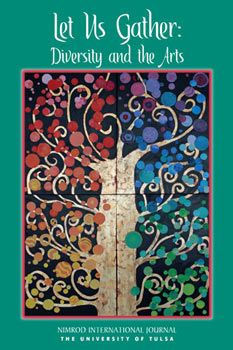 Last week, Nimrod International Journal announced exciting news for writers: they are now a paying market. For work printed in the two upcoming 2019 issues, the editors will pay $10/page with a maximum of $200, visual artists will receive $10 per image used, and all contributors will continue to receive two copies of the issue in which their work appears.
Last week, Nimrod International Journal announced exciting news for writers: they are now a paying market. For work printed in the two upcoming 2019 issues, the editors will pay $10/page with a maximum of $200, visual artists will receive $10 per image used, and all contributors will continue to receive two copies of the issue in which their work appears.
Writers whose work is selected through the journal’s two annual contests (Nimrod Literary Awards and the Francine Ringold Awards for New Writers) will also receive the new payment, though the monetary prizes for winners will remain the same.
Learn more and submit your own work at Nimrod’s website.
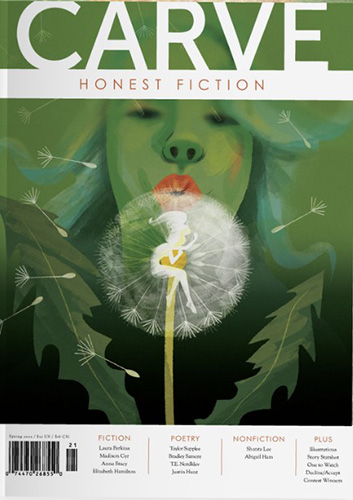 “Rejection doesn’t have to be the end of the line” according to Carve Magazine. To which end, they include the coolest column in each issue: Decline/Accept, with commentary from a writer whose work, originally declined by Carve, has been accepted elsewhere. The author writes about their rejection/revision/acceptance, a snippet of the original work is included with Carve editors’ comments as well the snippet revised (if applicable) along with editors’ comments from the publication that accepted the work.
“Rejection doesn’t have to be the end of the line” according to Carve Magazine. To which end, they include the coolest column in each issue: Decline/Accept, with commentary from a writer whose work, originally declined by Carve, has been accepted elsewhere. The author writes about their rejection/revision/acceptance, a snippet of the original work is included with Carve editors’ comments as well the snippet revised (if applicable) along with editors’ comments from the publication that accepted the work.
The Summer 2018 issue features Kelly Hill, whose story “The Bearded Loon” was published in the July 2017 issue of Upstreet. Hill comments on the rejection and subsequent acceptance, “I’ve been doing this writing thing long enough to understand that the story I set out to tell is not always the story I write or the story that others ultimately read. I’m always thankful for good feedback from insightful readers, although any feedback can be useful if it helps you mentally justify your stylistic choices.”
Decline/Accept is a great craft component for readers and writers alike, and you can see a full listing with links out (when available) to the final published work here.
 The Summer/Fall 2018 issue of Gulf Coast features several contest winners:
The Summer/Fall 2018 issue of Gulf Coast features several contest winners:
2017 Translation Prize
Chosen by John Keene
from Time to Be
by Camila Reimers
Translation by Lisa Carter [pictured]
2017 Barthelme Prize for Short Prose Winner
Chosen by Roxane Gay
“Pedro” by D.J. Thielke
Honorable Mentions
“The Things We Could Not Say” by Lishani Ramanayake
“Sunscreen” by Eric Schlich
The Inaugural Toni Beauchamp Prize in Critical Art Writing
Chosen by Darby English
“Dust Balls” by Brandon Brown
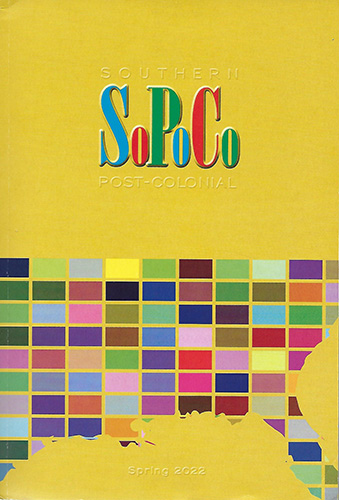
Poet, teacher and visual artist Truong Tran’s works are featured in the Spring 2018 issue of The Georgia Review. In addition to a full color portfolio inside, “Lost Poem #3” is featured on the cover.
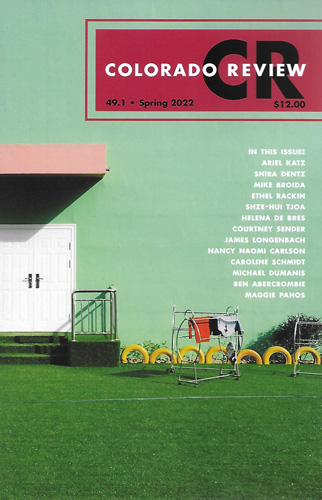
The Colorado Review cover photo by Brian Holland is luscious, and even more so when viewed full spread with the entire night-lit bridge in the background.
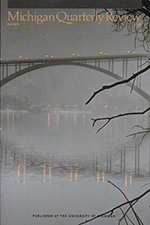
And a final splash of red and summer with “Picnic, Long Island, New York” by Ralph Gibson on the cover of the Summer 2018 issue of Michigan Quarterly Review.
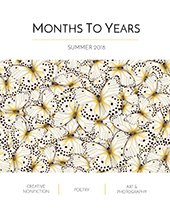 Death. Dying. Terminal illness. Words – and experiences – we tend to avoid, not want to talk about and, most certainly, not want to experience. Yet, as Founding Editor Renata Khoshroo Louwers says, these are topics that touch everyone’s life at some point. Which is why she and her husband began Months To Years, the online quarterly of creative nonfiction, poetry, photography, and art, as a response to their own experiences with loss as well as a way to support others. Continue reading “New Lit on the Block :: Months To Years”
Death. Dying. Terminal illness. Words – and experiences – we tend to avoid, not want to talk about and, most certainly, not want to experience. Yet, as Founding Editor Renata Khoshroo Louwers says, these are topics that touch everyone’s life at some point. Which is why she and her husband began Months To Years, the online quarterly of creative nonfiction, poetry, photography, and art, as a response to their own experiences with loss as well as a way to support others. Continue reading “New Lit on the Block :: Months To Years”
That’s what writers do: we start over. For a writer, every day is a new day with a new beginning. Even if we are writing an essay or a book chapter we have been working on for days or months—or years!—we face our notebook or keyboard not really knowing what is going to happen to our work next. We may think and hope that we know, but we really don’t—at least until we are deep into the story. Even then, we are invariably surprised.
Lee Gutkind from his What’s the Story introduction to the 4th Annual Readers’ Choice Theme issue of Creative Nonfiction – Starting Over: Hitting the Reset Button
Perfect for the start of the new school year – whether or not you’re a student! The Southeast Review is offering its second Writer’s Regimen for poets, essayists, and fiction writers who would benefit from incorporating structure into their daily writing practice – or perhaps get a daily practice started! Editor Dorothy Chan explains:
This October, The Southeast Review 30-Day Writer’s Regimen returns with daily prompts, daily exercises, and daily quotes to cure your writer’s block and give you an endless source of creative inspiration! We’ve added daily themes, so get ready to immerse yourself into different worlds every day! We’re also proud to announce craft talks by esteemed writers Ching-In Chen, Kao Kalia Yang [pictured], Sam Herschel Wein, and Timothy Liu. Registration is open now. This October, write lots of short stories and poems you’ll be proud of. We hope you enjoy our regimen!
In addition to all the daily features, Writer’s Regimen offer flashback craft talks from previous WRs for “more writing heavyweights” as well as a free copy of The Southeast Review.
For a PDF sample of the first regimen day, click here. Chan says, “This summer we’ve decided to innovate the regimen by including themes, and you’ll notice the theme of Day 1 is ‘secrets.’ These themes will carry on for a few days and each day, subscribers will experience a variation of that theme. Other themes include translation, the body, Hollywood, and seduction.”
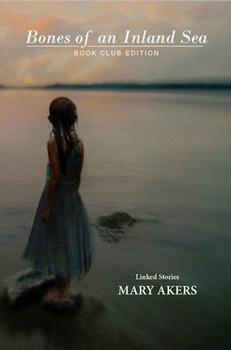 Readers, do you find yourself wanting to support small presses, while not wanting to break your bank? Look no further than Press 53. Each month, they’ll now offer up a selection of their titles at a discounted price. Visit their website to see the current titles in poetry and fiction, including Mary Akers linked story collection Bones of an Inland Sea, and Stacy R. Nigliazzo’s award-winning poetry collection Scissored Moon.
Readers, do you find yourself wanting to support small presses, while not wanting to break your bank? Look no further than Press 53. Each month, they’ll now offer up a selection of their titles at a discounted price. Visit their website to see the current titles in poetry and fiction, including Mary Akers linked story collection Bones of an Inland Sea, and Stacy R. Nigliazzo’s award-winning poetry collection Scissored Moon.
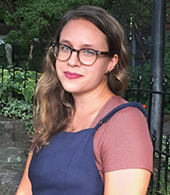 The Spring 2018 issue of The Georgia Review features “Lesson” by Elly Bookman, the 2017 Loraine Williams Poetry Prize Winner selected by Naomi Shihab Nye. In addition to publication, Bookman will receive $1000. The Loraine Williams Poetry Prize is open annually from April 1-May 15.
The Spring 2018 issue of The Georgia Review features “Lesson” by Elly Bookman, the 2017 Loraine Williams Poetry Prize Winner selected by Naomi Shihab Nye. In addition to publication, Bookman will receive $1000. The Loraine Williams Poetry Prize is open annually from April 1-May 15.
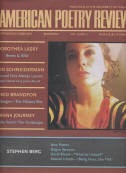
Regular readers of The American Poetry Review will be exicted to see the new cover design starting with the July/August 2018 issue. We love it here at NewPages World Headquaters! Nicely done APR!
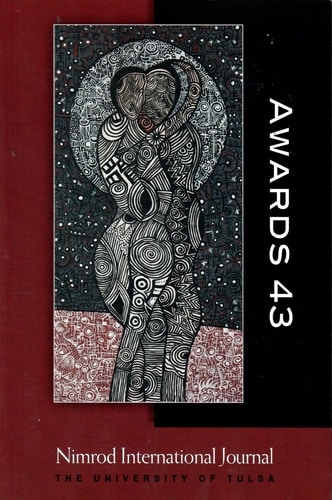
Diversity and the Arts is the theme of the Spring/Summer 2018 issue of Nimrod International Journal, featuring “Tree of Life,” a gorgeous canvas, acrylic paint, composition leaf and embroidery piece by the Tulsa Girls Art School: “an afterschool, social service program that uses art as a vehicle to reach girls.”
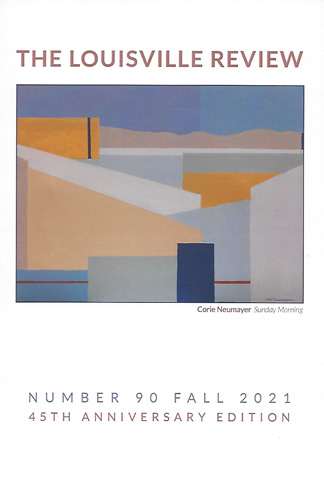
“Cedar Waxwing,” a photo by AJ Reinhart, draws readers to this Spring 2018 issue of The Louisville Review. Check out more of his nature photography and artwork here.
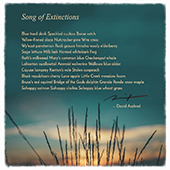 A while back, NewPages introduced Under a Warm Green Linden online poetry journal which had expanded its publication efforts to include environmental activism under its “Green Mission.” This mission promises to donate a portion of its proceeds to reforestation efforts (through the Arbor Day Foundation and the National Forest Foundation).
A while back, NewPages introduced Under a Warm Green Linden online poetry journal which had expanded its publication efforts to include environmental activism under its “Green Mission.” This mission promises to donate a portion of its proceeds to reforestation efforts (through the Arbor Day Foundation and the National Forest Foundation).
To date, Under a Warm Green Linden has funded the planting of 170 trees, and with the help of poetry lovers, hopes to continue this effort. One easy way to participate is by purchasing their limited edition broadsides which accompany each new journal issue. These are bea-u-ti-ful prints – I know because I have purchased every one of them! They are reproduced on high quality paper, full color, carefully packaged for safe shipping and, best of all, SIGNED by the authors. Pictured: “Song of Extinction” by David Axelrod.
Under a Warm Green Linden has also begun publishing chapbooks and has two available for purchase: Tempo Rubato by Boyer Rickel, A Place Where One by Barbara Cully, and bonehouse by Erika Brumett (forthcoming).
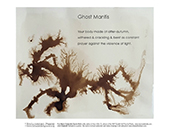 Broadsided Press art and poetry collaboration posters are available for free download and postering all about town as well as in PDF to share electronically.
Broadsided Press art and poetry collaboration posters are available for free download and postering all about town as well as in PDF to share electronically.
August’s Broadsided collaboration with words by Marci Calabretta Cancio-Bello and art by Elizabeth Terhune resulted in “Ghost Mantis.”
In addition to their ongoing CFS, Broadsided is looking for “multilingual writing” for a special edition: “Many writers grow up in or become part of families and communities that speak more than one language, and at Broadsided Press, we think that’s worth celebrating. In this special ‘Broadsided Responds’ feature, we will offer a folio of work that speaks between and with multiple languages.”
Nausheen Eusuf’s debut collection Not Elegy, But Eros is conversing with giants. Wallace Stevens, Robert Frost, Emily Dickinson, T.S. Eliot, Freud, and a slew of other great names are sitting at the table. In both form and content, Eusuf is serving what these great minds have tackled before.
The stories in Meet Behind Mars by Renee Simms touch on womanhood, family, sacrifice, and morals. Some of the tales are twisted with a bit of surrealism, a little Twilight Zone to counterbalance the absolutely real, cramped truth of growing up not only period, but a woman and black.
Let’s start here: Experience in Groups is a book of poetry. Specifically, it’s a book of poetry written by a well-established poet—Geoffrey G. O’Brien—which means that I’m sure that a lot of it went right over my head. But, all I can do is explain the things that I thought I understood, and see where it goes from there. Perhaps everything I say in the next seven hundred words or so is gobbledygook, but then again, there’s a chance that it’s not. Overall, that’s kind of how I felt about Experience in Groups.
Buddha’s Dog & Other Meditations by Ira Sukrungruang is a testament to the variety of forms nonfiction writing can reach as well as this author’s mastery of each. For teachers of creative nonfiction, this text models a range of approaches; for students of CNF (whether formally enrolled or not), this is a wonderful mentor text; and for us more general readers, this is a book to expand our experience with great satisfaction.
Starting with Goodbye: A Daughter’s Memoir of Love after Loss is a powerful new book by Lisa Romeo about the way our relationships with those we love change and deepen, even after death. Telling the story both of her father’s death and of her need to heal and go forward, this memoir is a moving account of the never-ending love between a father and daughter.
Ahmed Ismail Yusuf’s The Lion’s Binding Oath and Other Stories, presents an insider’s view of everyday life in Somalia during the mid to late 20th century. Yusuf had fled his birth country in the late 1980s during the Somalia civil war, and has since lived, educated himself, and worked in Minnesota.
Continue reading “The Lion’s Binding Oath and Other Stories”
The Undressing examines the physical, bodily relationship with the spiritual relationship between two lovers. There are elements of the political—the strongest portions of the book—and of the foreign. Li-Young Lee’s collection is philosophical, not exactly accessible for a first-time poetry reader, but one that with re-readings gathers depth and meaning each time.
Whereas the race card is now everyone’s card
in a deck I did not cut. I hate card games,
the conceit of the shuffle. I hate when white people
hate white people because hating white people
is fashionable. A person’s color is a still thing
to hate.
—from “Nonbinding Legislation, or a Resolution”
Cameron Barnett’s first collection, published by Autumn House Press, is powerful. Each poem in The Drowning Boy’s Guide to Water is a full meal, and not always easy to digest. His craft is superb, pure excellence in both expression and thrust, but the themes are exhausting, necessary, and yes, every single thing is race. Barnett’s endurance analyzing America’s binary black and white world is honorable, essential, and true, yet leaves the reader bone-tired.
. . . I met my husband in a class
on Ovid where we learned longing
changes us
to limestone, or causes us
to caress the white bull—no matter
that he’s animal and his child minotaur,
the dividedoffspring of our love.
—from “At the Reading of the Antiwar Poets, 2007”
Every time I read Jehanne Dubrow’s work, I write a good poem. In fact, after reading and reviewing her book The Arranged Marriage over a year ago, I wrote a whole chapbook, published the following year. Perhaps she is something of a muse to me. Perhaps this is why, after spending nearly two years in Denton, Texas, and nearly also working as an adjunct instructor at the University of North Texas where she serves as an associate professor, I did not try to meet her even though I was encouraged to.
Maybe our muses are best left alone, enigmas granted asylum from gaze and inquiry. In any case, Dubrow continues to bring me good luck and inspire more poems.
With the #metoo movement still changing the conversation on how women are treated in the US, this book of stories set in the 60s felt culturally relevant rather than retro. In three short fictions, Sandra Scofield examines the ambivalence and vulnerability of three women as well as the entitlement and ignorance of the men in their lives. Gender, more telling of one’s mobility and expectations in the 1960s than today, casts the male and female characters in narrowly defined roles. Women long for masculine freedoms and adopt a rebellious edge to keep themselves out of prepackaged social norms, while the various men in their lives conform to egoism, salvific nostalgia, and violent acts of privilege.
 IKEA CHOICES
IKEA CHOICES
by Ryan Thorpe
The family of three examines
the dining table for four,
calculating out their marriage
prospect. They are unsure
of the wood’s soft shine,
doubting it will survive past
two winters. . .
[Love the way this poem ends. Read the rest in the Apple Valley Review online Spring 2018 issue.]
Following the suspension of the 2018 Nobel Prize for Literature, The New Academy was created “to warrant that an international literary prize will be awarded in 2018, but also as a reminder that literature should be associated with democracy, openness, empathy and respect.”
Librarians from across Sweden were invited to submit nominations of authors for the prize; voting opened to the global public on July 10 and will close on August 14.
The top four nominations from this long list will receive final assessment for the award by an “expert jury” comprised of: Jury President Ann Pålsson, editor and independent publisher; and Jury Members Lisbeth Larsson, Professor of Literature, Gothenburg University; Peter Stenson, editor and critic; and Gunilla Sandin, librarian director.
The winner will be announced October 14.
Lisa Krannichfeld’s “Undomesticated Interior No. 7” dominates the cover of the spring and summer issue of Black Warrior Review. Its subject, a young black woman wearing a flashy blue suit, mint green button down, and screaming red boots, sits defiantly at the edge of a chair, ready for movement. An image of a snarling wolf hangs on the wall just behind her. In her artist’s statement, Krannichfeld says: “Images are vehicles for the teaching of history and it is the historical imagery of the female gender I aim to counterbalance.” Looking over the eight other images Krannichfeld has contributed to the issue, all of women in ornamentally-patterned suits, sitting in wallpapered rooms with framed images of bared fangs surrounding them like a warning, an aura, it’s clear that these are not the “doll-like women,” the “decorations” of the past; instead, Krannichfeld’s subjects throw the male gaze back at their viewers, watching with confidence, hands running together as they contemplate their opponent’s next move. And that move had better be good.
Continue reading “Black Warrior Review – Spring/Summer 2018”
Published by the College of Arts and Sciences from the University of North Dakota, the North Dakota Quarterly is a literary and public humanities journal that has existed for over 100 years, providing articles, essays, fiction, and poetry. They bring readers another great issue filled to the brim with a wide variety of enjoyable stories, essays, and poems.
Continue reading “North Dakota Quarterly – Summer/Fall 2017”